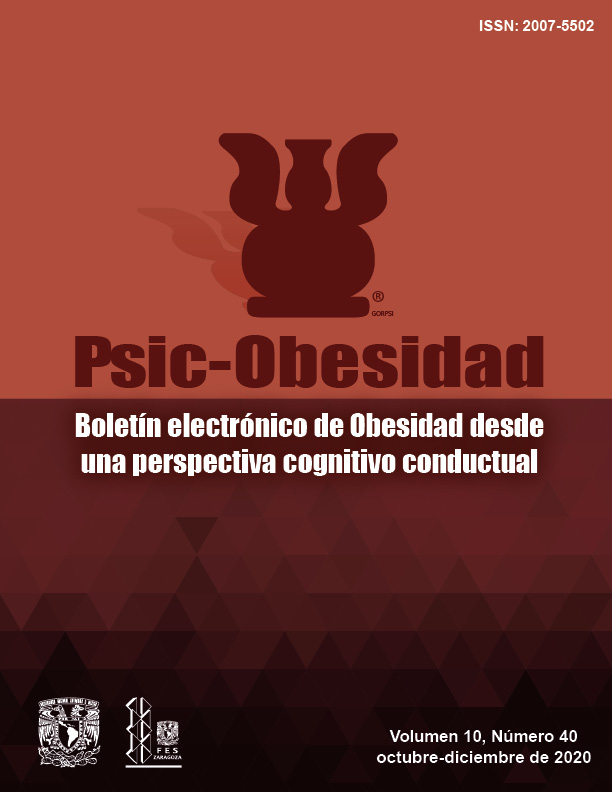Being obese in covid 19 pandemic: an additional stigma
Main Article Content
Abstract
By 2020, the spread of the COVID 19 disease worldwide distinguishes it as a pandemic, which puts the health and life of the population at risk. The first epidemiological findings point to the link between risk factors associated with contagion and deaths, highlighting cardiovascular and diabetes, followed by smoking and overweight with a body mass index greater than 30. In Mexico, the evening Health report showed the graph of the risk factors associated with deaths from COVID 19 disease. From the psychosocial perspective, the impact of the infectious disease has generated cognitive-behavioral and emotional responses that have ranged from states of alarm with neurovegetative and neuro-adrenergic shunt (emotional stress) through emotions of fear, anguish, sadness and insecurity, to the indifference and disbelief of the disease. The presence of health risk factors such as hypertension, diabetes, smoking or obesity has led to increased fear in people who suffer from them and social rejection, particularly in people with the presence of obesity.
This review work refers to the role of obesity in social stigma in conditions of a COVID 19 pandemic. A systematic review of the concepts of social stigma and consequences in COVID 19 was carried out.




